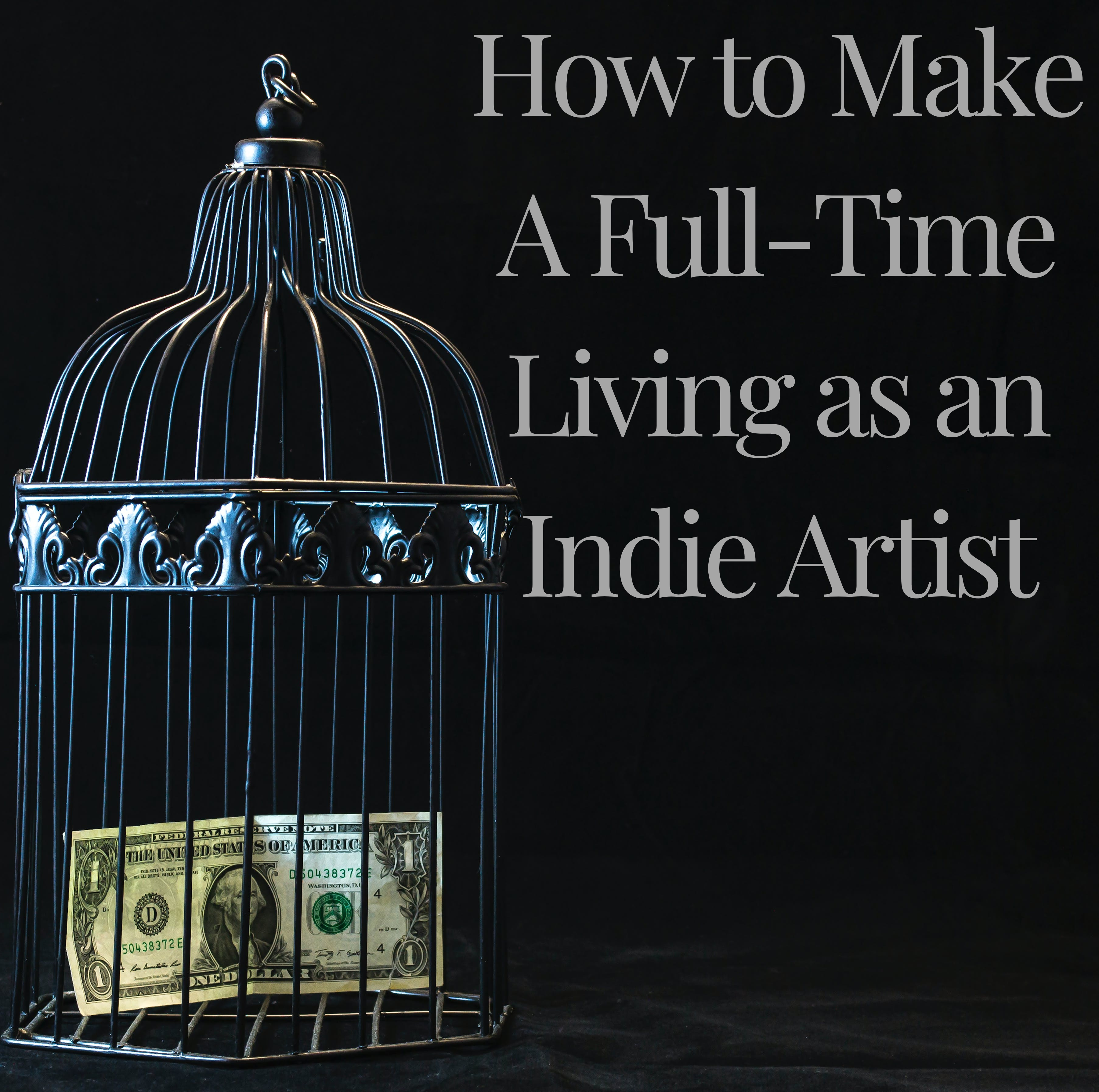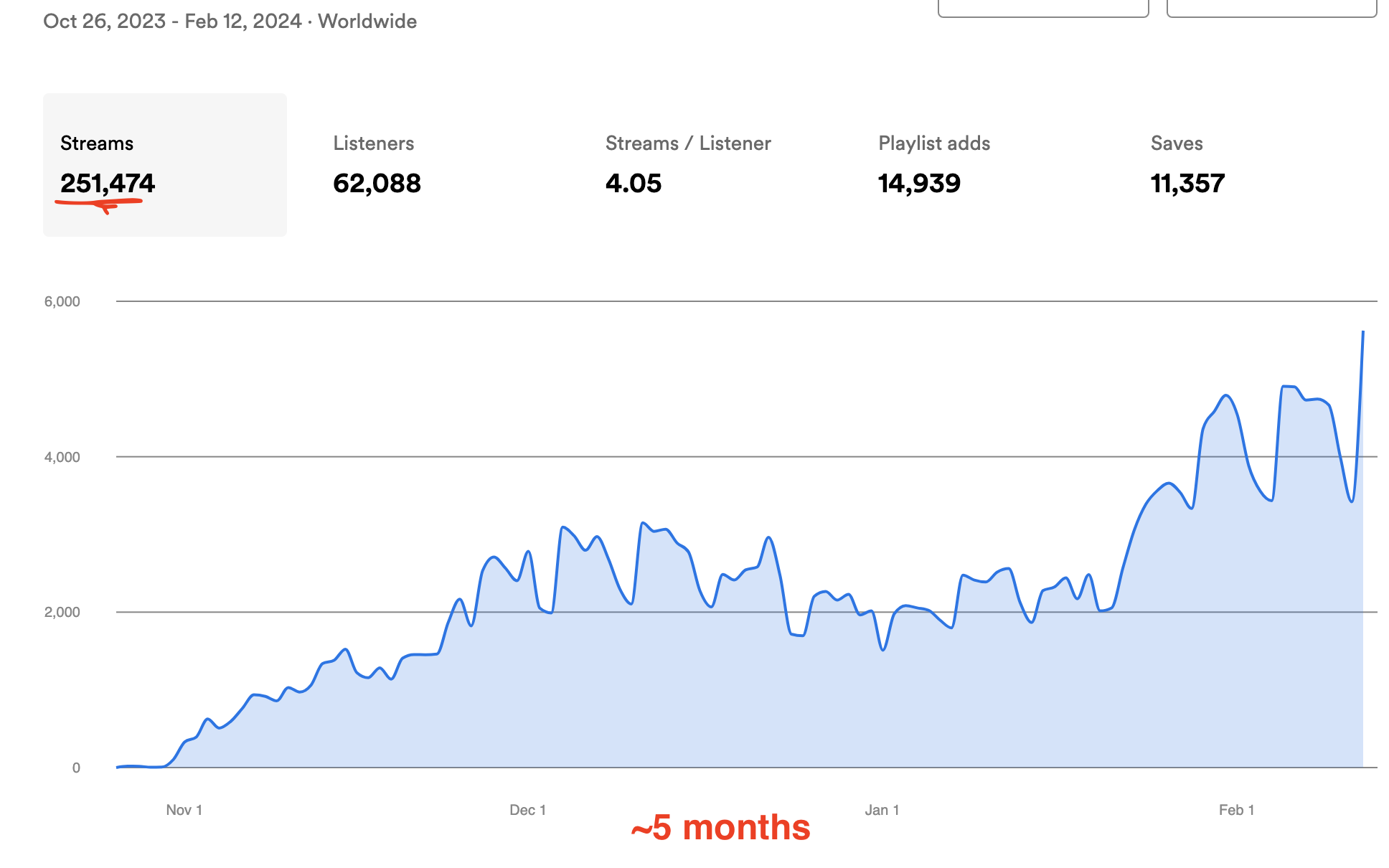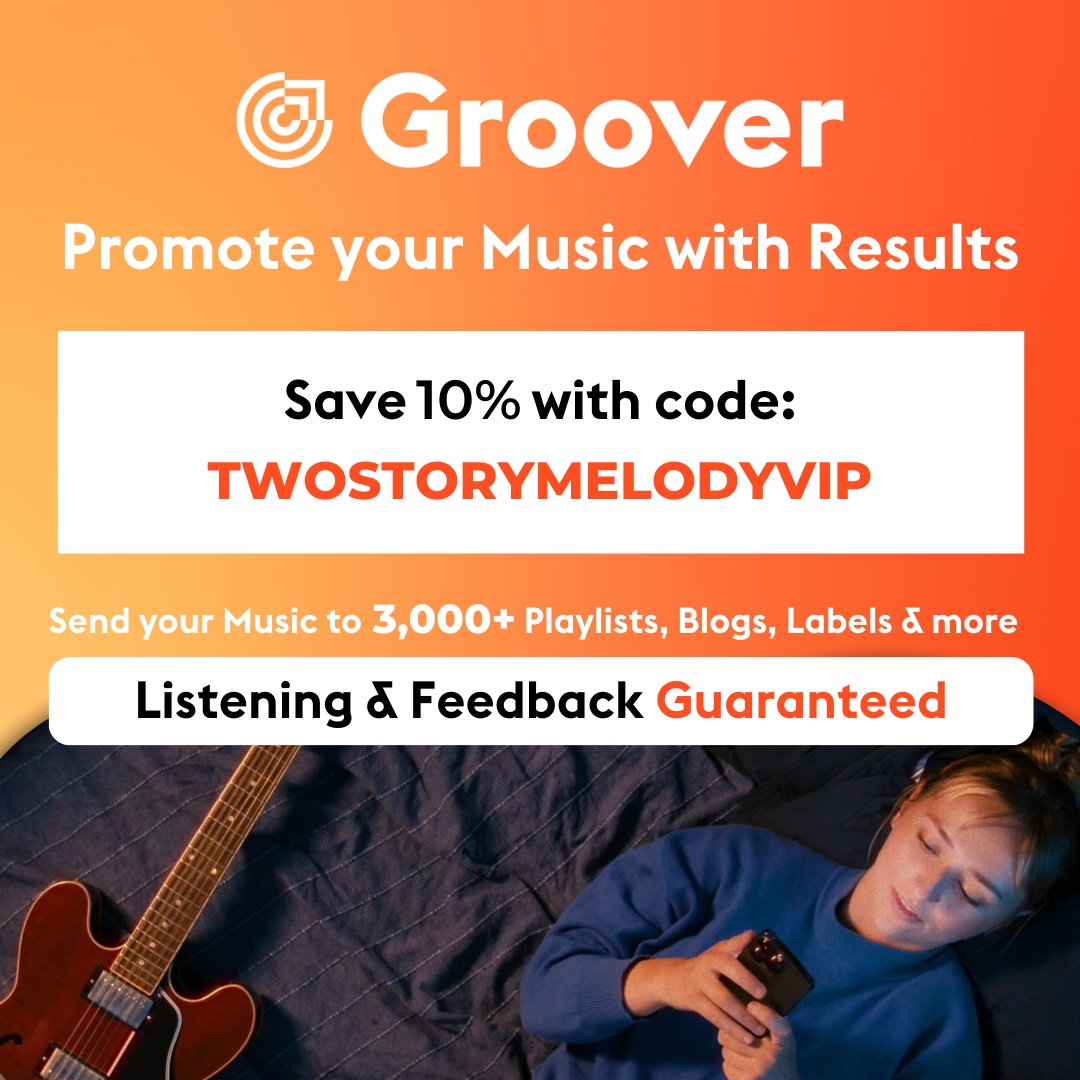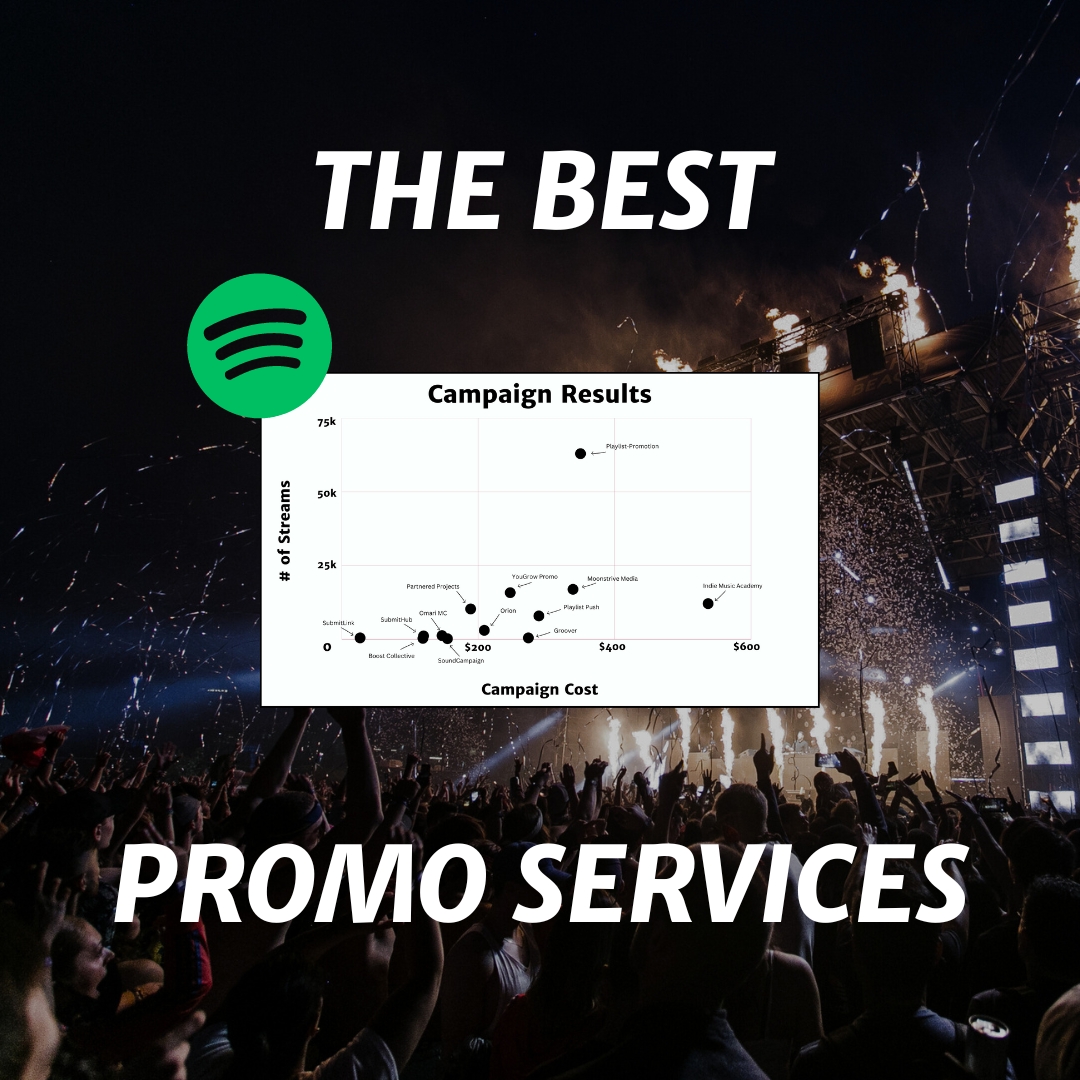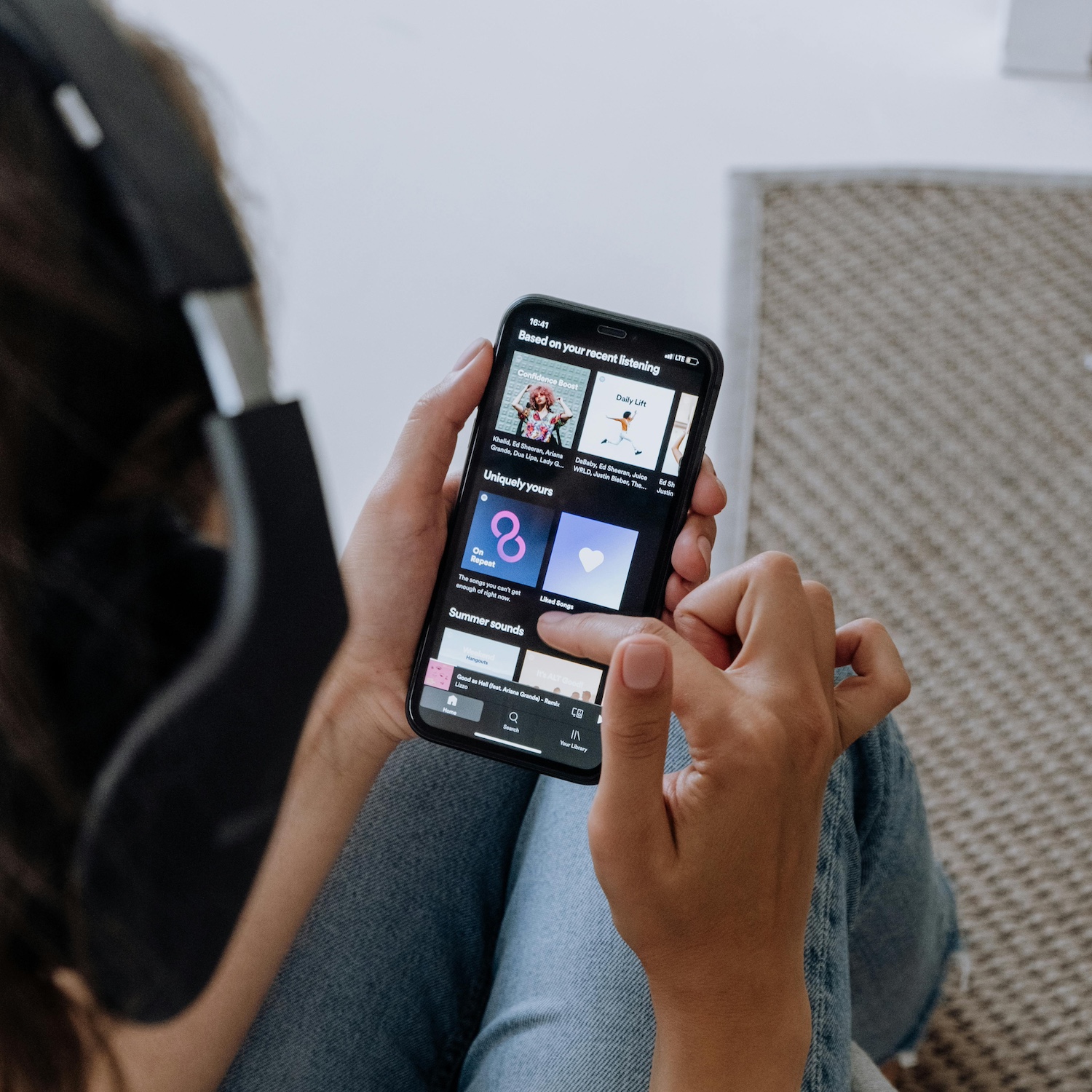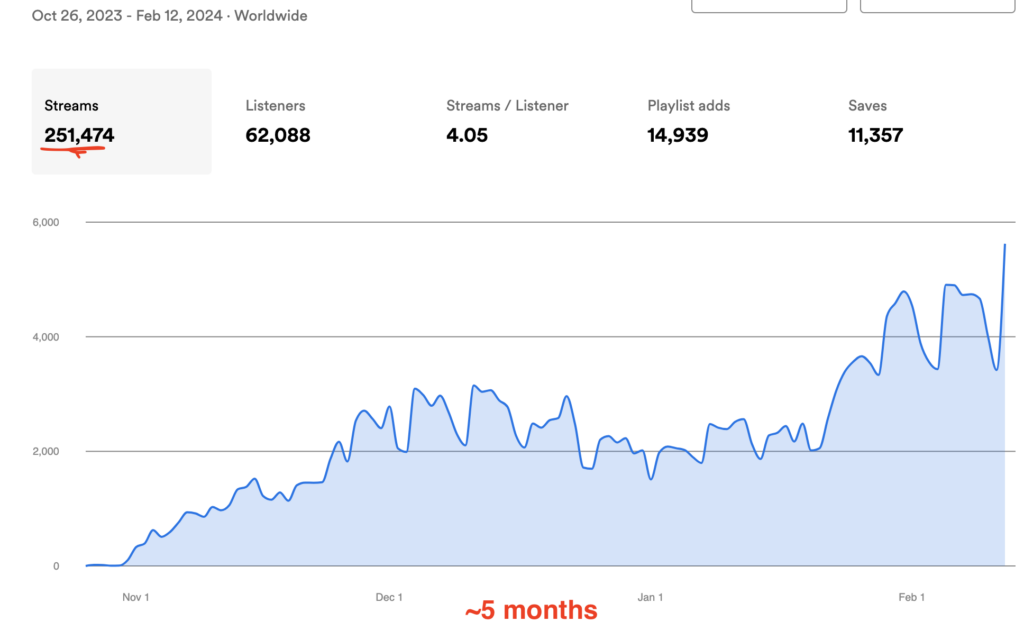https://www.vulture.com/2019/04/how-indie-artists-actually-make-money-in-2019.html
For the sake of continuity, let’s start this article in the same way I start so many of my articles: with some good old-fashioned negativity and a healthy serving of harsh realism. Friends, countrymen: it is hard to make a full-time living as an indie artist. It’s a glamorous idea, to be paid handsomely in exchange for the deeply personal works of art that you ripped from the fabric of your soul, but it’s also one that’s become exponentially harder to turn into reality as Spotify has tightened its stranglehold on the industry and, maybe somewhat counterintuitively, the number of artists releasing music has proliferated. There’s a lot of competition out there and only so much money to go around.
It’s not impossible, of course, and there are artists out there making it happen even as we speak. A quick Google search confirms as much, or, in typical internet fashion, it at least turns up a multitude of Reddit threads arguing the point in one direction or another. We’ll talk about some of the success stories later, though; for now, let’s get the obvious stuff out of the way.
Don’t Do it
The easiest way to make a full-time living as an indie artist is not to make a full-time living as an indie artist. That probably sounds like a cop-out, but I’m serious: if you can manage to hang onto a full-time job unrelated to your dreams of music stardom that is flexible enough to give you time and space to work on your songs, you’ll find yourself in a significantly more comfortable position than the vast majority of indie artists who are treating music as their sole source of income. While there’s definitely something to be said for the “all-in” approach (nothing gets results like panic and desperation), you’re likely to find that working a day job to bring home at least a little bacon is the more comfortable and risk-averse approach, and you might be surprised to find out just how many “professional” musicians are making money in distinctly non-musical ways.
Do It
With that said, let’s get down to the business of business. If one were to discount the advice above (respect, seriously), how would one go about making that proverbial living? My first bit of advice is going to sound like yet another dodge, in the sense that it doesn’t really answer the question, but here it is anyway: get thee a manager. Yes, a manager costs money, so right off the bat you’re in the hole, but passing managerial responsibilities to someone else (preferably, someone who knows what they’re doing or, alternatively, is shrewd and genuinely hungry to learn) frees you up to work on, y’know, music, and liberates you from getting too bogged down in the day-to-day buzz-killing business stuff.
If you don’t have the means or interest required to bring another human body into this equation, that means that the managerial work will fall to you. No biggie, but hopefully you’re good at juggling, because there are about a million tennis balls you’ll need to keep in the air. Let’s talk about a few of ‘em.
Streams/Digital Downloads
This is the obvious one, but it’s also perhaps the most difficult stone from which to squeeze blood (were you juggling tennis balls or blood-filled stones? I don’t remember). Streaming may seem like the most direct analogue to old-school album sales – streaming is, after all, the way the vast majority of listeners will experience your songs, and listeners listening is the whole point of this business – but given Spotify’s paltry payouts, you’ve got to cross an intimidatingly high threshold to realize any significant value from streaming alone.
Digital downloads will net you considerably more revenue, but that whole pipeline has mostly dried up by now; most listeners don’t have any expectation of real “ownership” of their music in the way they might have in the pre-streaming era, and they’re accordingly not eager to pay for that privilege. Still, it’s worth remembering the option exists.
Merch
Now we’re talking. A savvy purveyor of merch can really start to drive some impressive revenue. “Merch” can include virtually anything – vinyl, t-shirts, trucker hats, jewelry, and gig posters are all fair game, and that’s just the obvious stuff – and the margins tend to be pretty compelling, particularly compared to those streaming payouts we just talked about. Remember, though, that listeners won’t buy just any garbage you put out in front of them: the better the goods, the higher the sales.
“Better” doesn’t have to mean “higher quality/expensive,” either (although quality doesn’t hurt, of course); to an extent, successfully selling merch is a matter of knowing your audience and giving them what they want. Futurebirds has done a bang-up job on that point: they cultivate ongoing partnerships with companies like Howler Bros (plenty of overlap with their core audience demographic) and have a second Instagram account devoted solely to their online shop and merch sales.
Shows/Touring
This one might also fall into the “obvious” category, but it still needs to be said. Get out there and play some shows! Building up a big enough audience to generate real income from shows is no easy task, but there are a few different ways to approach this strategy.
Here’s one: if you’ve got any connections in the biz that are more established than your upstart project (read: bands that do draw an audience), try and get on a bill with them as a supporting act. Most legitimate music venues pay their performers based on ticket and drink sales, and by opening for a band that people know and show up for, you’ve hitched a ride on its coattails to a) attract new listeners to your own music, and b) make a little extra scratch on the side.
Of course, depending on demand and logistical feasibility, you could always take your show on the road, even if only for a mini-tour of your quasi-local quadrant of the country you live in (if you happen to be me, for instance, you could hop in your car and hit up the major cities in the southeast United States). Keeping things even closer to home, you might consider reaching out to local breweries or coffee shops to set up recurring gigs; those kinds of places need background music, and while they may expect you to play mostly recognizable covers, I bet you can manage to sneak in a few originals. Set up a placard nearby with your band name and Instagram handle, and boom – you’ve got yourself a handy little payday and some free marketing.
Syncs
Now we’re getting into the “Making A Living as an Indie Artist 102: Advanced Techniques.” A “sync” is just a fancy way to refer to a song placement in a movie, TV show, commercial, or video game, and it can be quite lucrative; while the payout will often be structured as a flat fee up front, depending on the deal the payout can be higher than you might guess (payouts in the high five figures are not uncommon), and you may also be able to earn ongoing royalties. Actually landing a sync is no easy task, though. Your songs need to be at a certain level of sonic and technical quality, so now is (likely) not the time to shop around your “endearingly lo-fi” bedroom recordings.
For a sync licensing company to even pay attention to your music, it will need to sound professional (read: tracked and mixed by someone who knows what they’re doing). To make things even more complicated, the songs that are the most appealing to sync licensors are often the most broad in terms of lyrical content and sound, so if your songs tend to reference, say, locations (guilty) and/or girls’ names (also guilty), you’ll have a harder time landing syncs than if you write more generally about, I don’t know, love and sadness.
Mixing/Producing
Speaking of mixing: if you do happen to be an indie musician with an aptitude for engineering and producing, therein lies yet another potential revenue stream. Independent artists are willing to shell out good money to have their songs mixed, and if you’ve got yourself an impressive (or even impressive-ish) portfolio of songs you’ve worked on, slap that sucker up on the internet and see if anybody bites. Of course, mixing and producing are their own major industries apart from songwriting and performing, and this route can turn into a major time-suck if you’re not careful, but if you’re talented and efficient it could also generate you some solid income.
Sponsorships
We’re still in the Advanced class here, so don’t be alarmed if the idea of a music sponsorship sounds totally foreign to you. Rest assured, though, that they are, indeed, a thing, and they can also be a hugely productive tool in your money-making toolbelt. That said, as is the case with the rest of these Advanced techniques, you yourself need to be operating at a particularly advanced level for sponsorships to realistically come into play. Think about these like the musical equivalent of social media influencer deals (ugh, I know): if you’ve amassed enough followers on Spotify, Instagram, etc., and you’ve honed your brand into something particularly unique and palatable, then you may have enough clout to impress, say, Taco Bell, and from there the sky’s the limit. You don’t necessarily have to shill burritos, though; you could just as easily (relatively speaking) sponsor your favorite guitar or drum brand, or even the company that makes that sick pair of denim you keep wearing to every show.
Success Stories
As has probably become clear by now, there’s no one surefire way to make a living as an indie musician, and most indie musicians who are successfully doing the thing are almost certainly combining the various techniques we’ve talked about here rather than focusing on a single income stream (or, yes, they have other jobs). Even so, for every hater on the internet decrying the Spotify model and lamenting the state of the industry and the pittance that artists are paid for streams, you’ll come across a success story. Okay, okay – the ratio of haters to success stories is not exactly 1:1, but still, it’s heartening to find evidence indicating that success is possible.
I’ll send you off with an uplifting real-world example. According to his Reddit posts, which are both frequent and friendly, Ryan Harris makes a living off of streaming revenue alone. Based on what I can gather, he tracks in his home studio and then ships off his songs to be mixed by the pros, and he’s also got a background in video production, which comes in handy when it’s time to come up with new marketing content. It helps, of course, that his music is good and well-performed. Ryan may be a special case (Ryan, if you’re in the mood to be interviewed for a future article, hit me up), but he’s a testament to what’s possible, and shit, if he can do it…well, maybe you can too.

